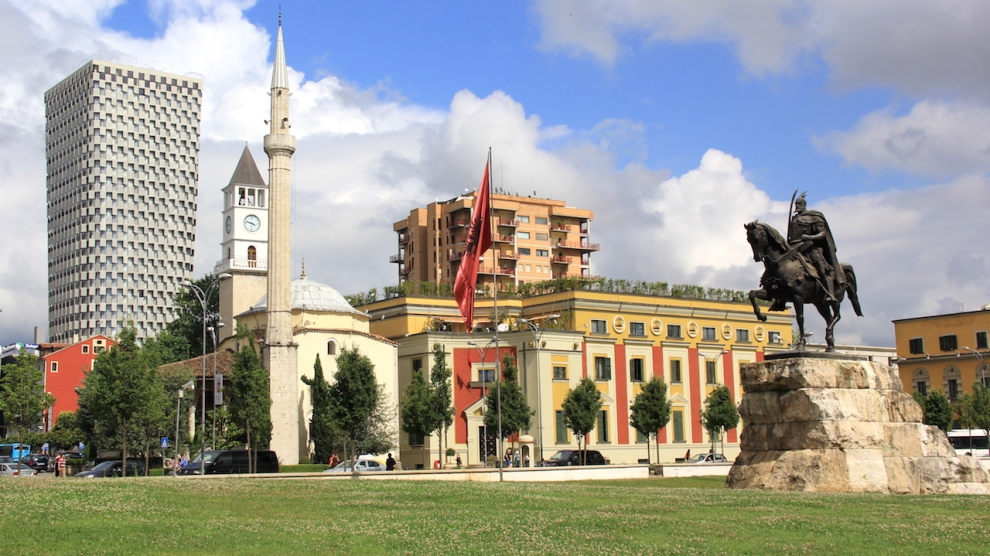Albania boasts rich soil and favourable climatic conditions in the middle of both the Mediterranean and continental zones of Central Europe. This puts Albania in a unique position to grow and harvest a diverse amount of agricultural produce, ranging from fruits and vegetables to and dairy products, to medical and aromatic plants, as well as wheat.
Consequently, agriculture is a key sector of the Albanian economy. Around 50 per cent of employment is in agribusiness, and the sector accounts for approximately 20 per cent of the country’s GDP. However, only around 2 per cent of total lending provided to the Albanian economy is allocated to this sector.
As a result, funding is one of the major obstacles for Albania’s agribusiness sector. The lack of finance makes investments difficult and this, in turn, is holding back innovation. Albania’s farmers are suffering from outdated technology and low productivity levels. This makes competing with market requirements more and more difficult for them.
The Albania Agribusiness Support Facility was launched in 2016 by the EBRD with the support of the government. It aims to facilitate access to finance for the entire agribusiness chain, in order to boost investment, innovation and growth in this vital sector for Albania. Its successful implementation is expected to benefit the country’s rural economy and promote private sector development.
The framework, with a volume of €100 million for the account of the EBRD, plus €80 million is expected to be mobilised by local partner financial institutions over a 3three-year period, has found a strong response in the market: Societe Generale Albania, ProCredit Bank Albania as well as the microfinance institutions NOA and Fondi Besa have already joined the programme.
Adela Leka, spokesperson of ProCredit Bank Albania, added: “This facility is an innovative product that will enable us to expand lending to the Albanian SMEs which operate in agribusiness. We strive to address their challenges and to help them invest in modern technology, engage in energy efficiency projects, and expand their market share. We consider these as key factors for future development, not only for the individual businesses but also indirectly for the economy in which they operate.”
The government’s financial contribution for the implementation of the framework has made Albania a member of the EBRD donor community. In addition to finance, the EBRD will be offering technical assistance to the participating financial institutions to enhance their capacities in lending to the agribusiness sector as well as direct advisory services to the agribusiness borrowers through its Advice for Small Businesses programme.
Overall, the EBRD aims to support Albania’s path from low productivity and subsidised farming towards becoming a sector highlighted by investments and sustainable development. The Bank recognises that these efforts will not come to fruition instantly, but it is fully behind the goal of innovating and expanding agribusiness in Albania and will continue to work alongside the government and partner financial institutions over the coming years to achieve this.
This piece is part of the EBRD 2017 Annual Meeting and Business Forum special report, prepared together with the European Bank for Reconstruction and Development. To register for the event, click on the banner below.







Add Comment